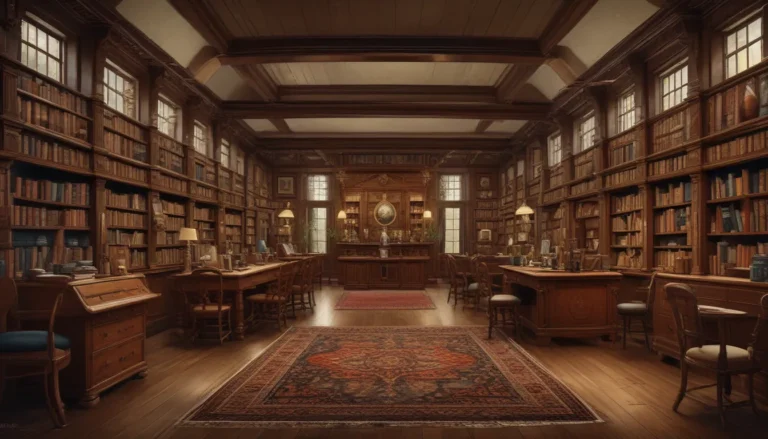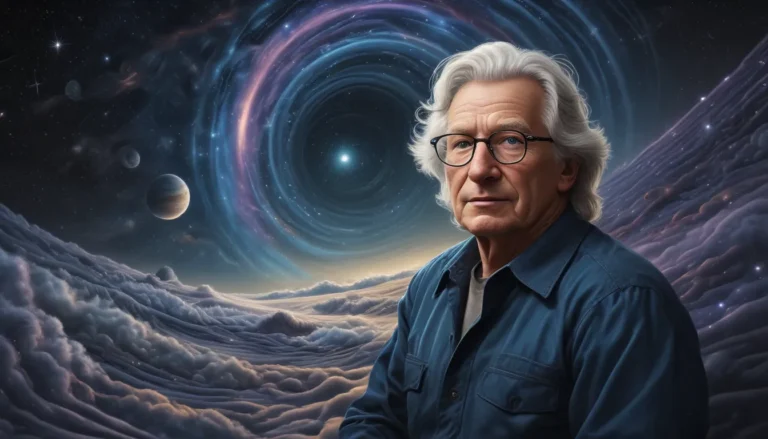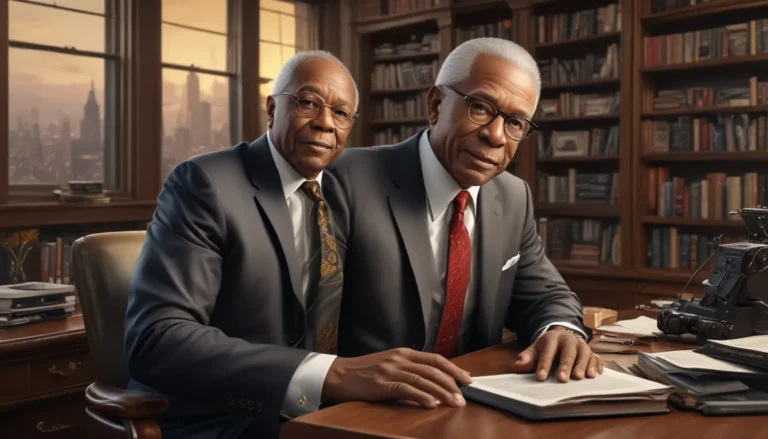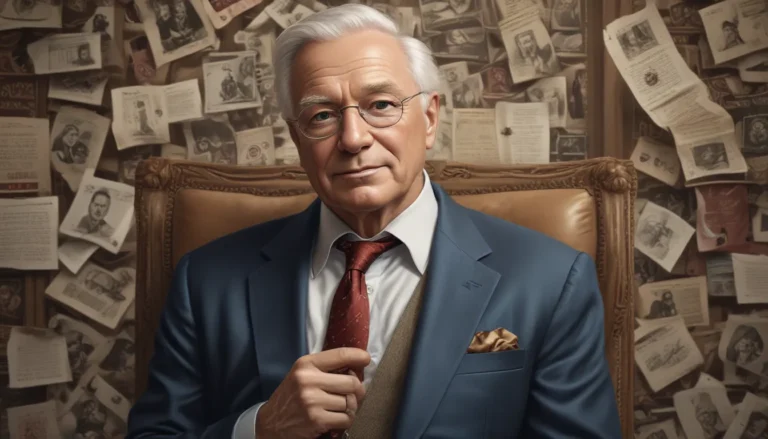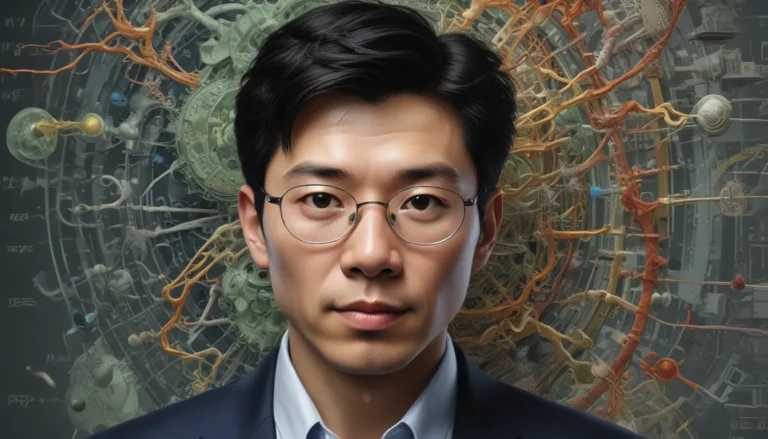The images in our articles may not match the content exactly. They are used to grab your attention, not to show the exact details in the text. The images complement the text but do not replace it.
Welcome to an exploration into the life and legacy of Laurent-Désiré Kabila, a prominent figure in Congolese history whose impact on the Democratic Republic of the Congo continues to reverberate. From his diverse background to his pivotal role in the fight for independence, Kabila’s story is one of complexity and intrigue. Join us as we uncover 10 surprising facts about this enigmatic leader and delve into the lesser-known aspects of his life that have shaped the course of Congolese history.
The Multifaceted Background of Laurent-Désiré Kabila
Laurent-Désiré Kabila, born on November 27, 1939, in the Belgian Congo, came from a diverse ethnic background, a mix of Luba and Lunda descent. This multicultural upbringing played a significant role in shaping his later political ideologies, setting the stage for his involvement in the tumultuous political landscape of the Congo.
Kabila’s Crucial Role in the Fight for Independence
From a young age, Kabila was actively engaged in the Congolese nationalist movement, fighting alongside Patrice Lumumba during the struggle for independence from Belgian colonial rule in the 1960s. His dedication and bravery earned him a prominent position in the evolving political landscape of the country, propelling him towards a leadership role in shaping the future of the Congo.
The Rebellion Against President Mobutu Sese Seko
In May 1997, Kabila made history by initiating a rebellion against the long-standing dictator, President Mobutu Sese Seko. With the support of regional forces, Kabila led a successful campaign that culminated in the ousting of Mobutu and the end of his dictatorial regime, heralding a new era for the Democratic Republic of the Congo.
A Beacon of Hope for Change
Kabila’s rise to power sparked hope among the Congolese people, who had long suffered under the oppressive rule of Mobutu. Promising political and economic reforms, Kabila aimed to bring stability and prosperity to a nation torn apart by war and turmoil. However, the road ahead would prove to be fraught with challenges and obstacles.
Challenges Faced During Kabila’s Presidency
As president, Kabila faced a myriad of challenges, ranging from political unrest and regional conflicts to economic instability. Tensions with foreign powers, notably Rwanda and Uganda, strained relations and led to support for rebel groups seeking to overthrow his government, further complicating the political landscape in the Congo.
Surviving an Assassination Attempt
In January 2001, Kabila narrowly survived an assassination attempt at the Presidential Palace in Kinshasa. Despite sustaining severe injuries, he managed to recover, shedding light on the fragility of his presidency and the volatile nature of Congolese politics. The incident underscored the constant threats faced by Kabila during his tumultuous time in office.
Allegations of Corruption and Human Rights Abuses
Throughout his presidency, Kabila faced allegations of corruption and human rights abuses, tarnishing his reputation and eroding public trust in his leadership. Accusations of embezzlement and suppression of political opposition marred his tenure, casting a shadow over his legacy and the legacy of his administration.
The Mysterious Assassination of Laurent-Désiré Kabila
On January 16, 2001, Kabila was tragically assassinated at the Presidential Palace in Kinshasa under murky circumstances that continue to fuel speculation and theories. His death marked a turning point in Congolese history, leaving a void that would be filled by his son, Joseph Kabila, who succeeded him as president of the Democratic Republic of Congo.
A Controversial Legacy
The legacy of Laurent-Désiré Kabila remains a subject of debate and controversy, with conflicting views on his leadership and impact on the Democratic Republic of the Congo. While some laud him as a champion of independence and resistance against external influences, others criticize his autocratic rule and failure to bring about lasting change and stability in the country.
The Unforgettable Impact of Laurent-Désiré Kabila
Regardless of differing opinions on his leadership, Kabila’s indelible mark on the history and politics of the Democratic Republic of Congo cannot be overlooked. His pivotal role in the fight for independence and his tumultuous presidency shaped the nation’s trajectory, leaving behind a legacy of ongoing struggles and aspirations for a better future.
FAQs About Laurent-Désiré Kabila
-
Q: What were Kabila’s early political beliefs?
A: Kabila began his political journey as a Marxist-Leninist, fighting against the authoritarian rule of Mobutu Sese Seko in the Democratic Republic of the Congo. -
Q: How did Kabila come to power?
A: Kabila led a rebellion against Mobutu’s regime, eventually toppling him and assuming the presidency in 1997. -
Q: How did Kabila’s relationship with foreign powers evolve?
A: Initially supported by Rwanda and Uganda, Kabila later fell out with these countries and formed alliances with Angola, Zimbabwe, and Namibia. -
Q: Why was Kabila assassinated?
A: Kabila’s assassination was a result of political infighting and discontent within his own government. The exact motivations and individuals involved remain a subject of speculation. -
Q: What impact did Kabila have on the Democratic Republic of Congo?
A: Kabila’s presidency was marked by ongoing conflict and instability, with armed rebel groups and foreign powers vying for control of the country’s vast resources. -
Q: Was Kabila involved in corruption?
A: There have been allegations of corruption against Kabila and his family, including accusations of embezzlement and illicit trade in natural resources. -
Q: Did Kabila have any significant achievements during his presidency?
A: Despite the challenges, Kabila’s government managed to negotiate the end of the Second Congo War and implemented some economic reforms. -
Q: How is Kabila remembered by the people of the Democratic Republic of Congo?
A: Kabila’s legacy is deeply divisive, with some viewing him as a national hero while others criticize his authoritarian tendencies and failure to bring lasting peace and prosperity. -
Q: What is Kabila’s influence on contemporary Congolese politics?
A: Kabila’s influence looms large in Congolese politics, with his son, Joseph Kabila, serving as president for 18 years after his father’s assassination. -
Q: How has Kabila’s assassination impacted the Democratic Republic of Congo?
A: Kabila’s assassination plunged the country into further instability, leading to power struggles and violence that continue to this day.
In conclusion, Laurent-Désiré Kabila’s enigmatic life and controversial legacy continue to captivate historians and political enthusiasts alike. His story serves as a reminder of the complexities of leadership in Africa, where power struggles, alliances, and conflicts shape the course of nations. As we unravel the mysteries of Kabila’s life, we gain a deeper understanding of the challenges faced by the Democratic Republic of the Congo and the enduring impact of his tumultuous presidency.


